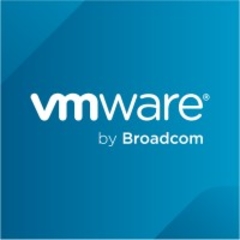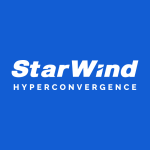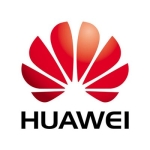What is most valuable?
The value that VSAN brings to our organization, really there are two major areas. One is the ability to replace very expensive proprietary SANs. The other is the need to replicate and keep data available at all times across three separate data centers. Those two elements are really where VSAN plays.
How has it helped my organization?
Probably the biggest benefit we get is the replacement of the SANS and it's purely a cost one. To give you an idea, we spend roughly 50% less on equivalent storage by using VSAN to replace our more traditional SAN architecture. Further, the operating costs are 20, 30 percent less. The ability to scale our storage as we need it is far simpler with VSAN than buying the more traditional route. So I would argue that that's probably the single best feature we get.
What needs improvement?
There are features that I would love to see added to VSAN and I think they're being worked on. One of the major limitations is its inability to provide storage to things outside the hyper-converged world. Any traditional SAN we have left over in our institution will be for that function. Ultimately, if we can remove that by simply extending VSAN's access outside of its little virtual bubble, so to speak, that's the key. And as I said I think that's going to be added.
For how long have I used the solution?
VeriTech is a consulting and engineering firm specializing in health care. We provide, management and technical skills often acting as the CTO of, healthcare institutions. One of our engagements is I'm actually the interim acting CTO of Baystate Health, in western Massachusetts. VSAN is one of the primary ones but, software defined, architecture and complete hyper-convergence is really what we use VMware for. We use NSX and VSAN as part of our, absolute total infrastructure. And that's all part of vCloud, initiative. We also use Horizon for our VDI, implementation. And that pretty much-those products are 99% of what we use.
What do I think about the stability of the solution?
The stability of VSAN so far has been excellent. We're just beginning to enter production. We're beginning to migrate our data off a traditional SANS which are a collection of EMC, IBM, NetApp, whole range of them onto the VSAN platform and so far we haven't had any problems.
What do I think about the scalability of the solution?
It's actually the internal feature that I think gets us the great feature of savings out of it. With VSAN I simply add disk drives and hosts to my infrastructure at any of the facilities I have. The net result is an increase of both storage and processing.
In the older model, if I need to add, let's say a terabyte of space for some particular tier one application, I have to add a terabyte, from let's say EMC, into data center one, a terabyte into data center two, a terabyte into data center three, and if, in my adding of those, I cross one of those magic boundaries where I'm out of cabinet space or whatever, then I have all those expenses. None of that is true with VSAN. In VSAN, I simply add drives into a chassis anywhere in my system. If I need more space, I buy a simple chassis, throw it in there, and continue to add the drives. Much more scalable. There really is no limit to it.
How are customer service and technical support?
Technical support on VSAN has been excellent also. It's been a bit of a paradigm shift for our employees. They're used to that traditional sort of big iron, I'm going to call it stair-step limited approach and it's taken a little bit of skill to get them used to it, but VMware has been there right for us from the beginning. They've helped our people understand the difference and we're pretty much now self-sufficient.
Which solution did I use previously and why did I switch?
The choice of VSAN was almost made for us. And let me step back for a minute and say it's not particularly the product, although we love the product, it's where we suggested after quite a lot of testing of other-of other competing products, we knew that traditional SAN architecture and the cost of deploying it, maintaining it, was unsustainable. Our budgets in healthcare IT are flat. No one's giving us extra money. But, with all the images and the doctors and the sharing of data, the need to store data is not being held flat. It's going way up.
We simply don't have the money. So we needed some new, way to address storage. And that meant software defined storage. So that was a given. The next step was we needed something that would provide the levels of service we have, and stability we have with the traditional architecture but at far less price. That's where VSAN shone. That's where when we did all the necessary testing and reviews VSAN acted in a secure performance and cost, areas needed.
The selection of VSAN, it's really part of a larger hyper-convergence model and for technical reasons and for simplicity, we wanted products. If we were going to move our entire, siloed approach of storage here, processing here, networking there, onto one single platform, we wanted all of those abilities buried into the extraction or the hypervisor level itself. We didn't want to buy independent little products and snap them in so to speak. Really, that means the only solution suite was the VMware world of products -- NSX for networking, VSAN for storage, and vCloud for everything else. So it really was a no brainer. That was really the essential relationship between VSAN and the other products.
How was the initial setup?
The implementation of VSAN along with the implementation of all hyper-convergence technology is tricky. Although we benefit greatly for it now, there were a lot of issues that, we simply had to work through. And these are not really an issue related to the product itself but more related to the nature of what the product does. Since VSAN is a software component that allows you to add storage to your hyper-converged system, which in turn is based on products like Cisco’s UCS, the revision of code in the Cisco UCS chassis, the types of drives, the levels of drivers across the entire platform are essential to keep in lock step. So, we had many cases where, as we added capacity, turned on new features, began to migrate, we ran into all sorts of, um, difficulty. But the truth is, with our people, with VMware’s, with Cisco’s, everybody supplied the skills we needed and now we're pretty much, we're there.
What was our ROI?
Well, VSAN is a solution of replacement. VSAN is going to replace all of our traditional SAN. So ultimately at the end of the day a couple years from now, almost all of our storage should be on VSAN. It really should be very little if anything left.
Which other solutions did I evaluate?
When we selected VSAN, as I said, remember, it's part of a total package, so the better question is, when we were selecting hyper-convergence, who would be the vendor for that. Well, there aren't that many options out there. There's really three. You have Microsoft. You have, open stack solutions and open source solutions, and then you have VMware. The Microsoft product, although engaging, isn't really ready for prime time according to our needs. The open source open/stack option is potentially interesting but requires a great deal of internal engineering and support that healthcare systems really don't have. Really left VMware as the only viable, affordable, complete solution. And hence we chose it.
What other advice do I have?
On one side is a strategic vendor and that's where VMware, Microsoft, in the medical case, Cerner, which is a large application provider. There are four or five vendors that I would consider strategic and these are vendors that we could simply not operate without the function that they provide. So when a vendor's classified as strategic and then we look at the function they provide, there has to be a level of commitment. They must be a market leader. They must have enormous R&D capabilities. They must be flexible. They must interact with our engineers at a peering level, not simply as a dictatorial here, use this, and that's what's good for you and no more. VMware clearly acts appropriately like that. So, because, VSAN is part of hyper-convergence, hyper-convergence is a strategic imperative you can connect the dots where a company like VMware is necessary.
I would say, that they are definitely there. They're a high nine [out of 10]. Anybody that's looking to do hyper-convergence I think needs to understand a few basic principals. And all of these apply to VSAN as it applies to any of the elements of hyper-convergence. This is a long project. It's not something that's going to happen all at once and the value is after completion, the sum total of the parts.
If you go through a project like this for example, at Baystate, it's a two to three year project with required funding across that period of time. If, for some reason, we withdrew funding halfway through this process we would end up with less than the sum of our parts, we would end up with a lot of disconnected stuff. So be sure to make sure that your management and the people involved understand that this is a major commitment. It's not, oh, I'm just going to buy this once and forget it.
The other thing I would suggest, be paid attention to, is the affect this has on your people, on your engineers, on your workers, your HR considerations. In a traditional environment like ours, we're siloed. We have our storage guys here, our networking guys here and so on and so on - very expensive, a lot of duplication. In a hyper-converged model, all of that becomes one. Really what you have is a series of better trained, more effective engineers, but less of them. That doesn't mean you fire people.
That means you now put those people to other projects that have been sort of languishing because we just could never get around to them. That's, I think, a big thing to understand, that you will affect the way your users work. If they're not willing to learn new skills, if they're not willing to cross boundaries which were once siloed, your project could be in jeopardy.
When researching anything like hyper-convergence, the more information the better. We spent a great deal of time talking to not just health care institutions, and to be fair, this is a relatively new trend in health care so there really aren't all that many to talk to, but there are a number of non-healthcare institutions that are further along in some of these projects than healthcare is. We spoke with them, we spoke with vendors, we spoke with even other consulting firms. I think it's very important to gather as much information as you can before, you know, embarking on this.
Finding the resources for the gathering of this information is both hard and easy. It depends on which one we're talking about. The ability to get information from other institutions if they're outside of healthcare, and remember I'm speaking from a healthcare point of view, may be difficult, because they may not be allowed to share certain information. Getting consulting information is difficult unless you, of course, engage them. And I would argue that it's not necessarily such a bad idea to engage for a small amount of money the relative experts in some of these consulting firms and just have a quick conversation with them. If all of a sudden they seem to be knowledgeable, you do your homework on them, I would argue a further engagement is not necessarily a bad idea. But you do have to put some efforts into finding the info. It's not just going to fall out of space.
Disclosure: PeerSpot contacted the reviewer to collect the review and to validate authenticity. The reviewer was referred by the vendor, but the review is not subject to editing or approval by the vendor.














Many Excellent Points.